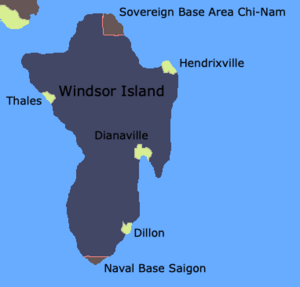Mala'anje Repatriation Act
The Mala'anje Repatriation Act is a piece of legislation enacted by the Grand Duchy of Lac Glacei in 1705 AN. The act allocates funding and services to the indigenous Mala'anje people who have had a long history intertwined with that of Lac Glacei. The act further grants indigenous Mala'anje right-of-return; meaning they are guaranteed provision to secure passage to their native homeland in eastern Keltia. It also clears the way for Lac Glacei to establish a First Nation Territory for the Mala'anje to return to, effectively granting the government the right to colonize the Mala'anje's ancestral lands and establish a dependent territory for them at that location. Provisions within the act include the construction of public amenities such as schools and hospitals, as well as providing guidance in establishing a local indigenous government for the territory. The act is the first official legislation to grant indigenous rights to the Mala'anje. At present the Lac Glaceian government has declared Windsor Island and Qorali as lands falling within the FNT.

Rollout
The MRA is a phased plan that will be implemented over the course of several years, if not longer. Phase One will be in a voluntary documentation of all Mala'anje within Lac Glacei. This will include establishing a national database and requiring those who declare themselves of indigenous ancestry to either show documented proof of lineage or submit to DNA sampling. Those who are registered within the database are then eligible for Phase Two which will be signing up to receive repatriation benefits. Grants are awarded based on skillsets and family size. For example, a large family with an agricultural background may be eligible for a grant of sizable acreage and then tasked with establishing a farm in the FNT. Once enough people sign up for benefits and grants have been awarded, the government will then begin Phase Three which will be the resettlement of those persons in their ancestral homeland. Communities will be carefully planned with optimization of natural resources and the skills offered by those who choose to resettle.